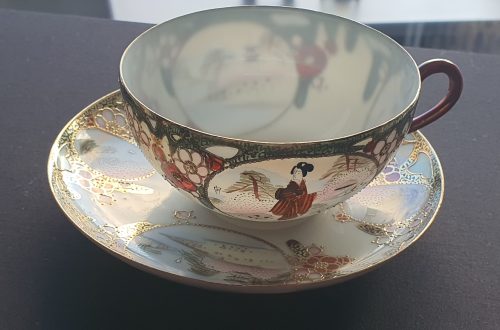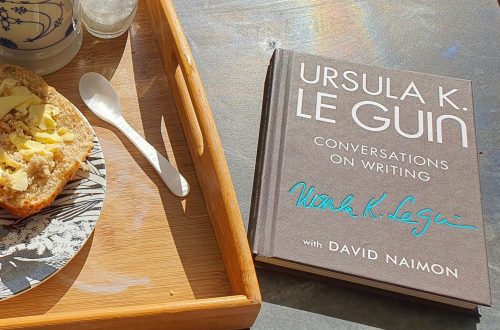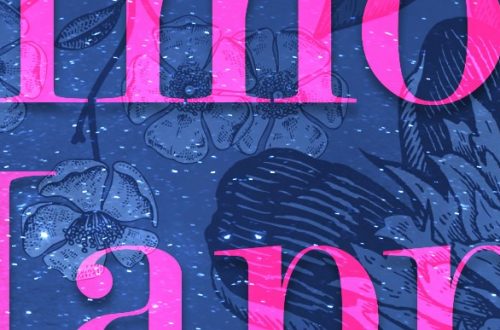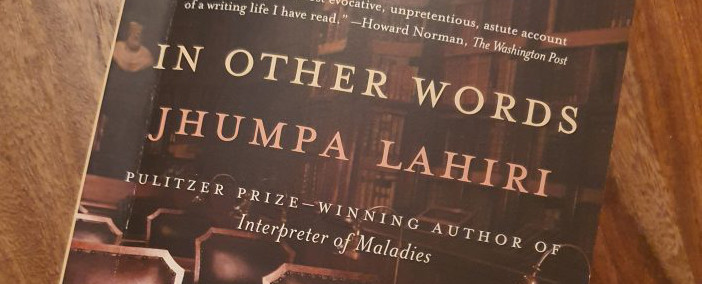
In My Own Words
About 5 years ago, when I started creative writing courses, my writing tutor recommended this book to me:
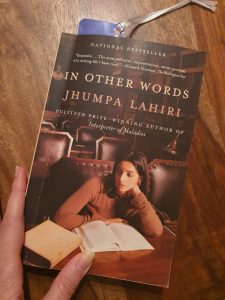
In Other Words is written by the US bestselling author Jumpa Lahiri about her taking a vow to learn to write in Italian. She wrote fiction only in Italian for years. The book became a bestseller, so you may know the story. And obviously this could be a book for me as I also chose to write fiction only in a language that is not my mother tongue. For some reason, I never picked it up until now. Like people and lovers, every book has a fixed time to enter your life, I really believe that. And I fell for it from page 1, it resonates with me on so many levels. It is a beautiful self-exploration and a love declaration to writing and finding your words. In the Author’s note at the beginning it says: I want to render my Italian honestly, without smoothing out its rough edges, without neutralizing its oddness, without manipulating its character.
Myself, I neither write in English to show off language skills or to come across as a cosmopolite. Nor do I strive for perfection. Quality of language means a lot to me, but I don’t mind if a phrase sounds a bit off or if a sentence has some rough edges a native speaker would never give to it. It is my words, my tool for artistic expression. I usually let someone proofread my work – and it is important as sometimes I do ridiculous things. Words appear that do not even exist (though I am really sure I heard that one before), or I translate German proverbs literally without noticing and it just doesn’t mean the same thing. But I never take all the comments on board. Stephen Fry gave a wonderful interview once, in which he kept ranting for minutes about peoples attitude to language, reducing it to flawless grammar: “People should stop sending me photos of posters in supermarkets to point out punctuation mistakes. A writer is concerned with other things than that.” And not to make excuses but working alongside authors who are British or US natives, I’ve noticed they also bend idioms and grammar rules all the time. It is what adds flesh to the bone.
Be that as it may, the question remains: Why? Why make my creative life so complicated, from the writing process itself up to reaching potential readers?
I have never forced this, my ideas for stories always came naturally to me, and ever since I knew the language well enough, in English only. I do not translate them in my mind. Writing in a foreign language requires discipline and a constant honing of skills. As with every skill, there are good and bad days and other than in my mother tongue, I constantly map out unchartered territory when expressing a new thought. For the past five years, I have only been reading fiction in English and I watch the news on BBC. Luckily, my job forces me to speak English almost the entire day. It may sound a bit obsessive but if you want to be good at playing a certain instrument, you need to practice all the time.
The first and best answer is: I fell in love.
With the language and its authors. It started with song lyrics and poems. There is a way of capturing an emotion in a single phrase or word, which, for me, is like no other. Sometimes it drags you down to your knees, so beautiful it is. I feel like while in German language, one can do a lot of precise chopping with a kitchen knife, in English one can swing an axe. With less effort. I could write another blog post on all my favourite examples of that. And there are many words you cannot even fully translate into German, without losing part of what they imply, such as “strange” or “agency”. And it is a fascinating thing about language that one can still grasp their meaning, although deprived of an identical expression in one’s mother tongue.
For those who do not share such love for a foreign language, a common reaction is:” Well, this sounds really weird, maybe you are actually running from your true self? Trying to buffer some real emotion deep inside?” I met Latin American authors who seemed to have such an intense relationship with their native language, writing in a different one is like cheating on a lover to them – and going to hell for it. And certainly, there is an element of disguise in writing in a language that your family does not speak. But to me, it is less like running from myself, but rather like putting on a costume. A new freedom rather than a limitation. Your choice of costume allows you to be someone else, but at the same you are expressing a side of yourself more deeply than your real self was ever able to express. There is a new truth hidden in that lie. It is creating a new space rather than running from one. And we all deserve to live more than one life, by our own terms and in our own words. That’s what art is for, and while I enjoy it so much, as I am now rolling some of it out to the public, I hope you do too 😊

